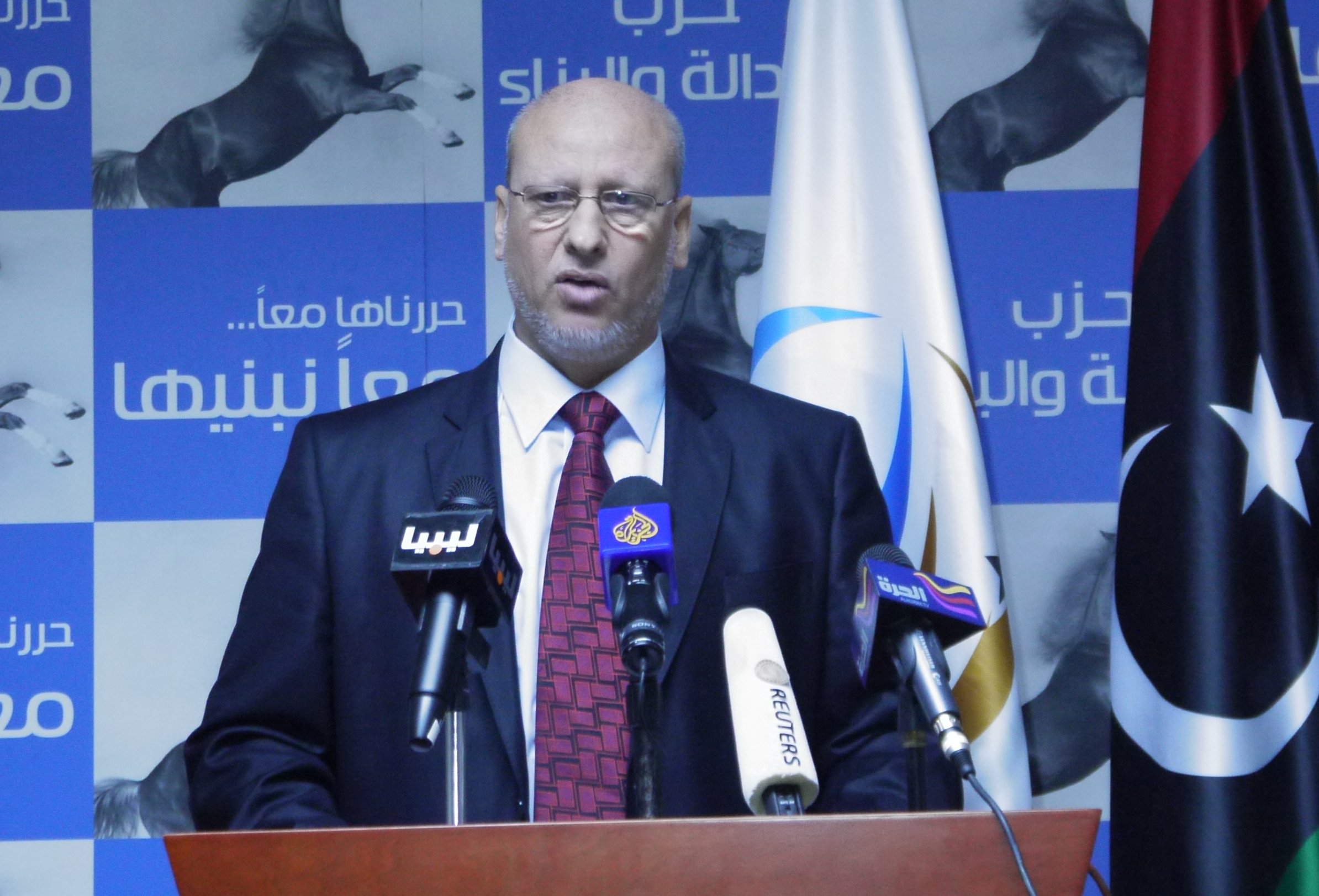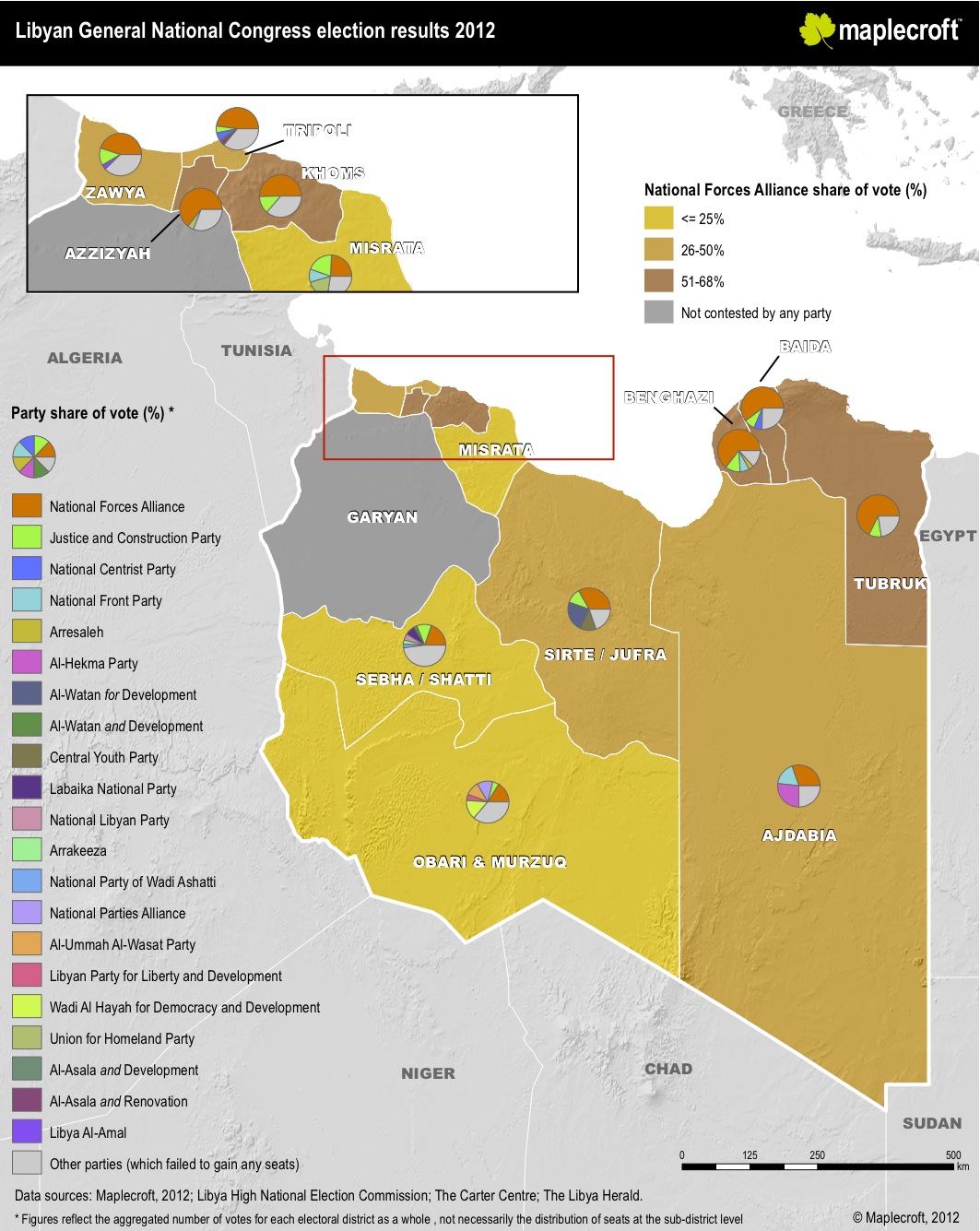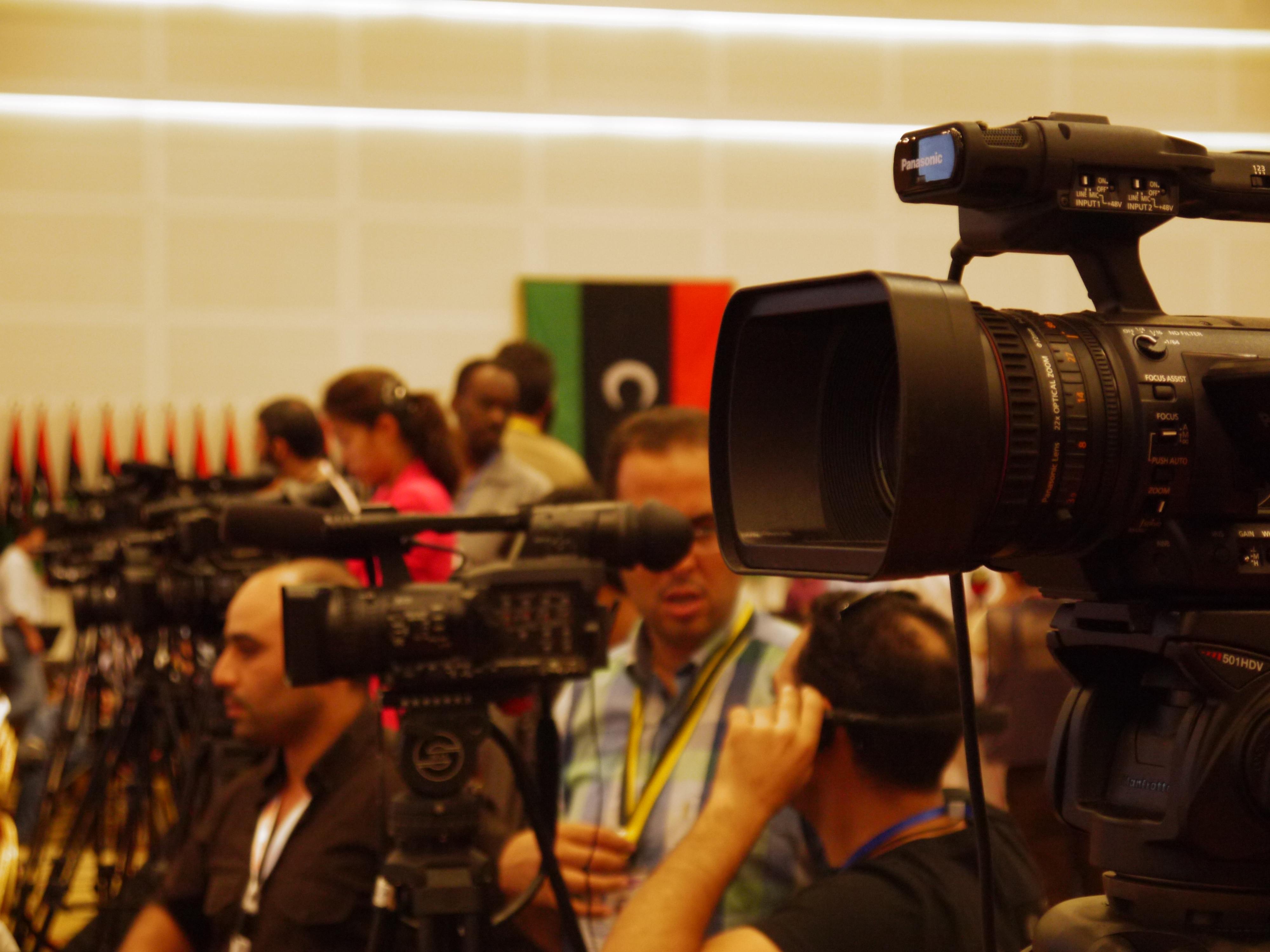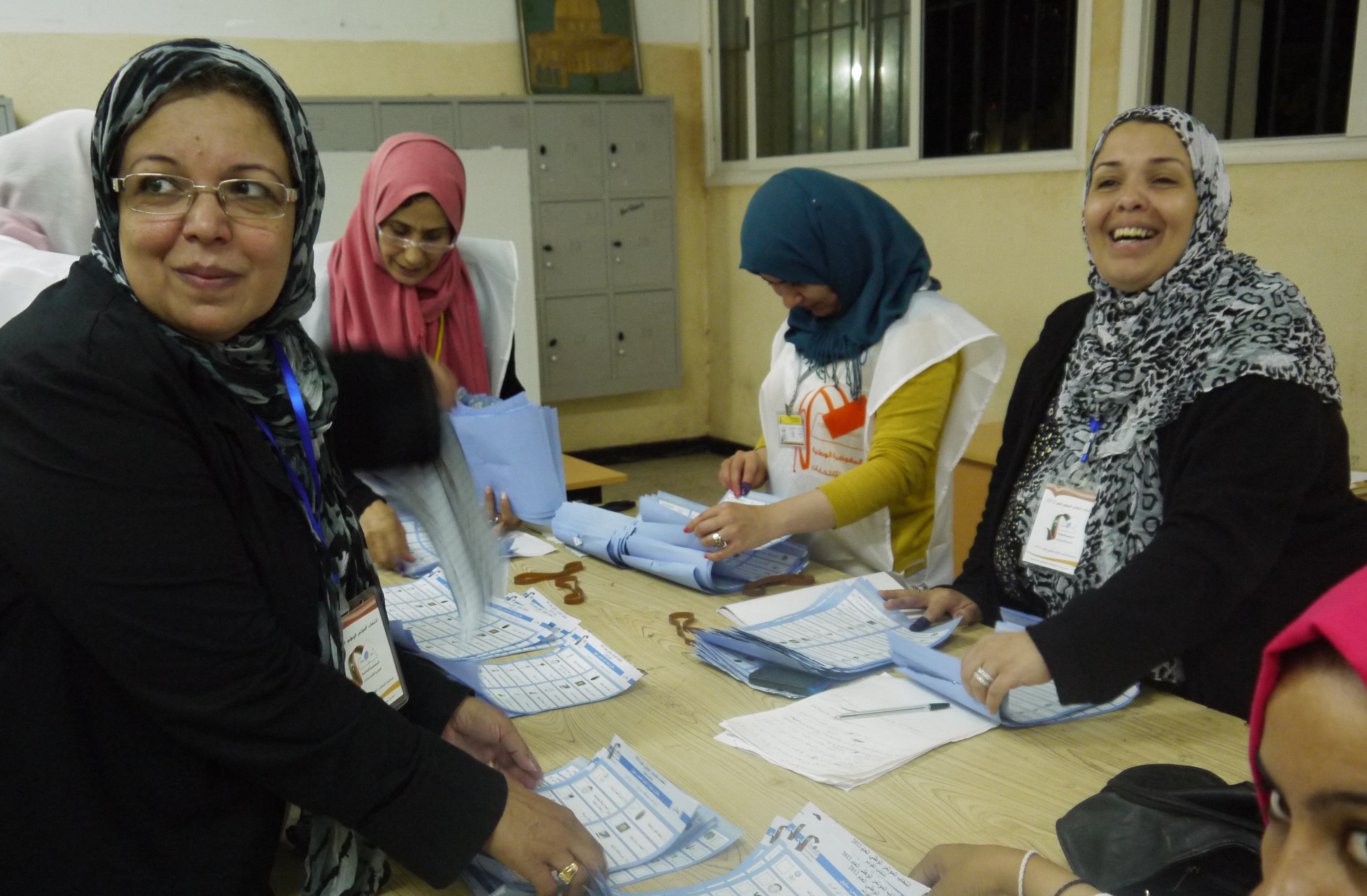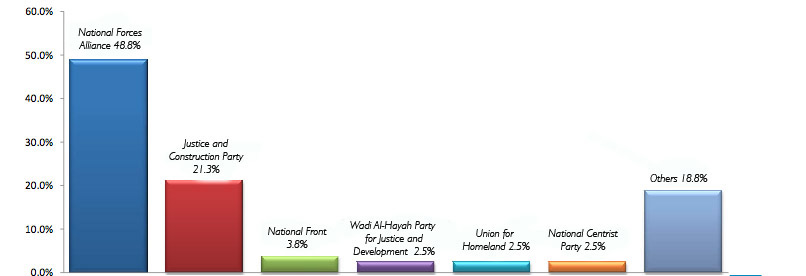By George Grant.
Tripoli, 18 July:
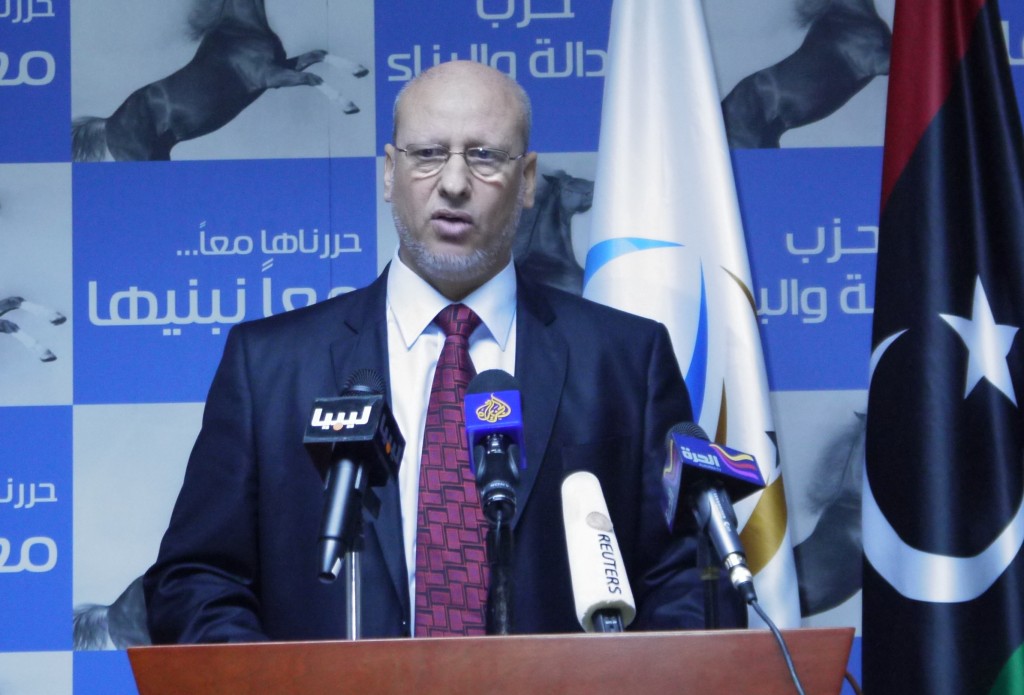
The leader of the Muslim Brotherhood’s Justice & Construction Party, Mohammed Sawan, has conceded that collaboration with . . .[restrict]Mahmoud Jibril’s National Forces Alliance may be inevitable if his party is not to be relegated to opposition in the National Congress.
The admission represents a significant climb-down from the position adopted by the politician in the run-up to last night’s election results, when he dismissed Jibril as “like Qaddafi” in his understanding of Sharia law and confirmed that the NFA was not included in his party’s coalition plans.
Asked if he still believed the Justice & Construction party could form a government without the NFA, Sawan told the Libya Herald earlier today that “theoretically it’s possible, but we are not looking to do that in practice”.
The Justice & Construction party took 17 seats in the Congress, fewer than half the 39 seats achieved by the NFA.
Nevertheless, Sawan stood by earlier predictions that his party would receive the support of a “major portion” of individual candidates, although he refused to speculate on how many. Yesterday evening, Sawan disclosed to a journalist not working with this paper that he believed the number may be around 25.
If Sawan is to rival the NFA, support from the individual candidates now look to be his only realistic hope, with no significant allies emerging from the party lists.
Justice & Construction may well have had a friend in the Nation Party – which predicted it would take as many as 27 seats in the days preceding the elections – but hopes of a formal alliance in the Congress were shattered after it emerged that the Nation Party had in fact failed to take a single seat on the party lists. The party maintains, however, that it has supporters amongst some of the individual candidates.
Neither the National Front of Mohammed Magarief, nor the Union for Homeland of Abdurrahman Sewehli present themselves as obvious choices, with both having voiced considerable unease over the J&C’s stance on the role of Islam in the public and private sphere.
“We want to re-educate people who don’t understand Islam”, Sawan said recently in an interview with this paper. “The government must enforce Islam in every aspect of its work”.
Such views have caused controversy, with many Libyans believing that Islam should help to guide government policy and lawmaking, but that it should not be the responsibility of the state to instruct people how to practice their faith.
Today, Sawan also sought to tone down such rhetoric, remarking instead that “we want all aspects of life to conform with Sharia”.
The final shape of the Congress in terms of political alliances is unlikely to be known for at least the next few weeks, with a government not expected to be formed until after Ramadan. [/restrict]
